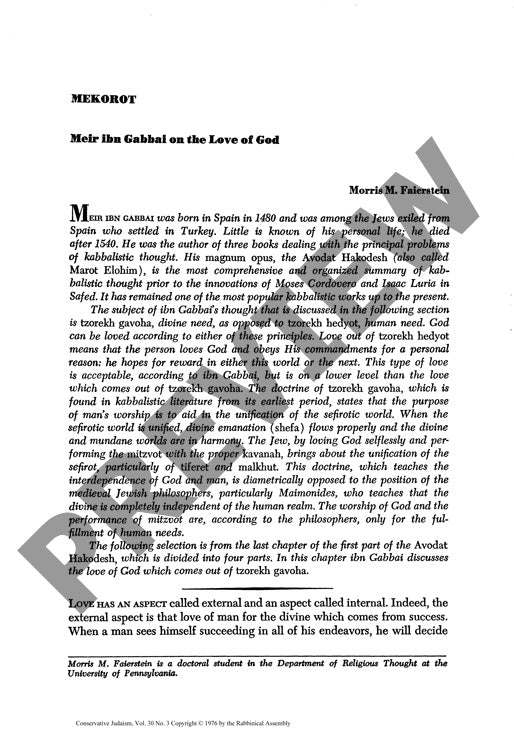Mekorot Meir Ibn Gabbai on the Love of G
Couldn't load pickup availability
In the aftermath of the 1492 Spanish Expulsion, exiled Jewish thinker Meir ibn Gabbai (1480-c.1540) radically reimagined the relationship between human and divine love, challenging centuries of medieval Jewish philosophical thought. Through his influential work *Avodat Hakodesh*, ibn Gabbai articulated a revolutionary hierarchy of divine love that positioned human religious action as essential to cosmic harmony. His framework distinguished between *tzorekh hedyot* (love motivated by human need) and *tzorekh gavoha* (love driven by divine necessity). Close analysis of *Avodat Hakodesh*'s first section, particularly its final chapter, alongside Talmudic and Zohar sources, reveals how ibn Gabbai elevated selfless worship aimed at sefirotic unification—especially between *tiferet* and *malkhut*—above devotion motivated by personal reward. By asserting divine-human interdependence rather than divine self-sufficiency, ibn Gabbai's doctrine directly challenged Maimonidean philosophical traditions. His theological innovation established human religious practice as instrumental to facilitating proper divine emanation, marking a profound shift in Jewish mystical thought about the cosmic significance of human devotional acts.

More Information
-
Physical Description
-
Publication Information
Published 1976
ISBN
-
Publication Credits
Morris Faierstein

